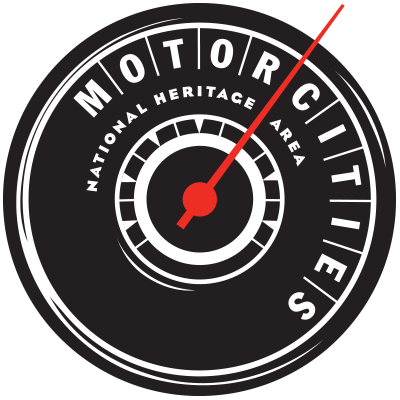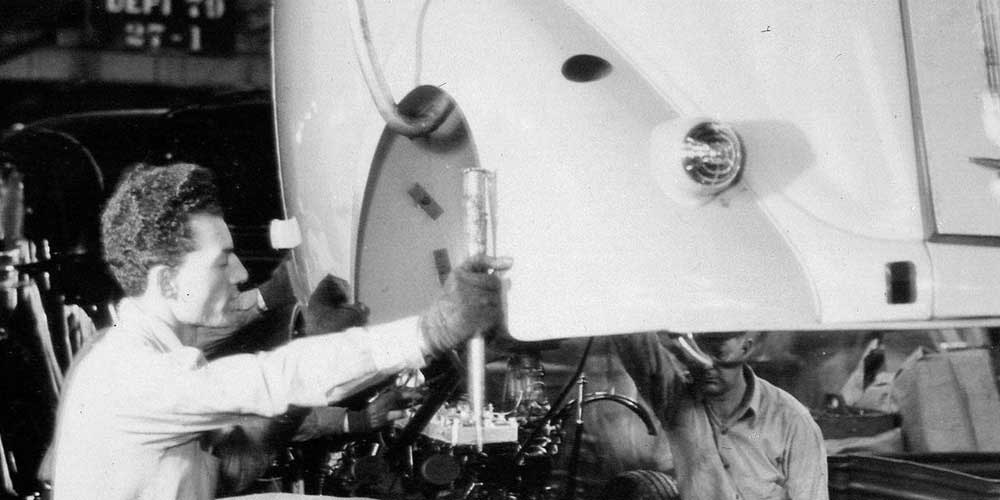By Robert Tate, Automotive Historian and Researcher
Images courtesy of the Ford Motor Company Archives
Published 1.5.2022
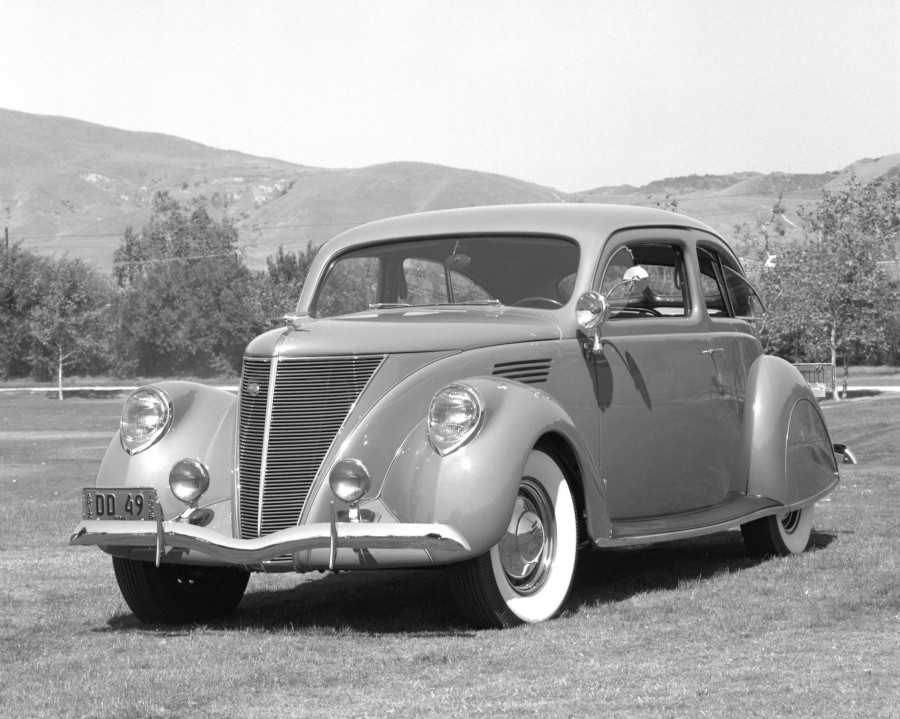 1936 Lincoln Zephyr front end (The Henry Ford)
1936 Lincoln Zephyr front end (The Henry Ford)
If there was one Ford product that was very popular during the late 1930s, it was the Zephyr, which was introduced in November 1935 for the 1936 model year under the Lincoln nameplate. The 1936-40 Zephyr models became very popular, and the American consumer loved their great aerodynamic styling.
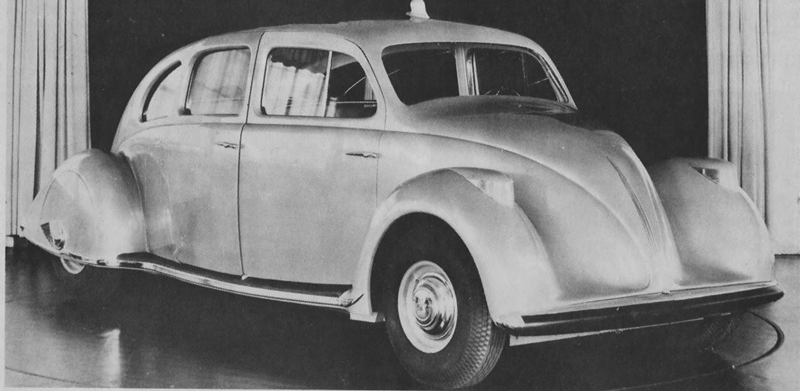 1934 Scarab Tjaarda Prototype
1934 Scarab Tjaarda Prototype
The Lincoln Zephyr was influenced by the 1934 Scarab Tjaarda prototype model from Briggs Manufacturing. In fact, Ford President Edsel Ford and John Tjaarda at Briggs, along with a couple of Ford Motor Company’s top designers, Eugene Turenne Gregorie and Bob Koto, worked on creating the Zephyr. Edsel Ford, son of the company founder Henry Ford, was definitely motivated to create cars with a sense of style. It was Edsel’s influence that led to the company purchasing the Lincoln brand in the first place in 1922.
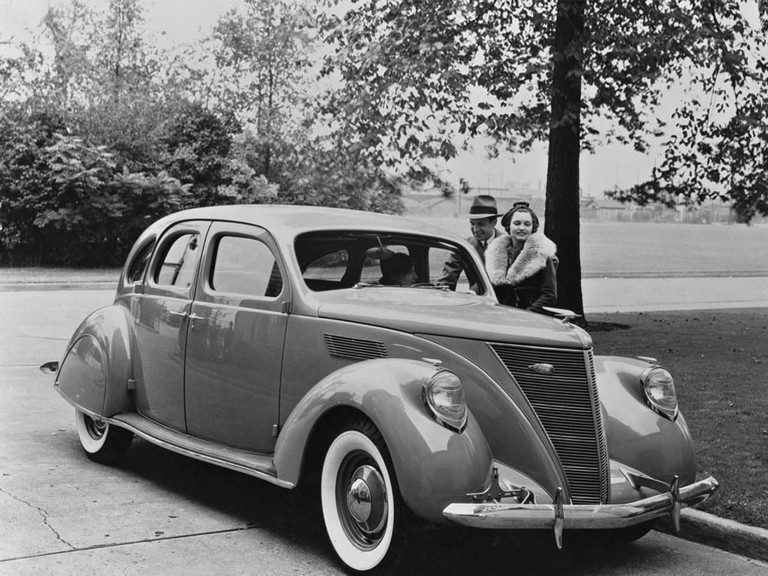 1936 Lincoln Zephyr sedan (The Henry Ford)
1936 Lincoln Zephyr sedan (The Henry Ford)
Automotive historians have said that the Lincoln Zephyr was both one of the most handsome American automobiles of the 1930s and one of the most revolutionary. The automobile offered a popular sloping rear deck and curved side windows. The front fenders were also an attractive feature which included a simple grille form with added horizontal bars in combination with its front headlamps molded into the front fenders.
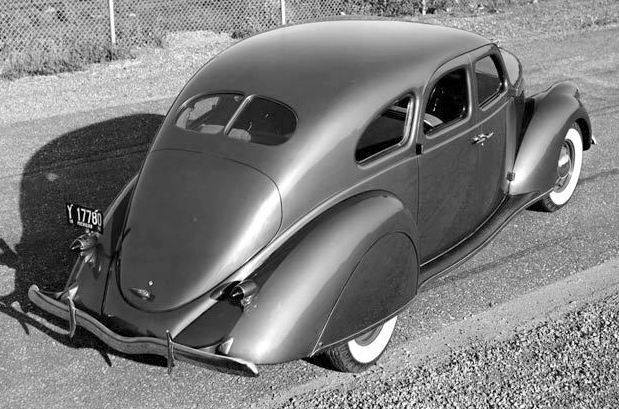 1936 Lincoln Zephyr rear design (The Henry Ford)
1936 Lincoln Zephyr rear design (The Henry Ford)
The most popular Zephyr model was the 4-door sedan of which 23,159 units were made. Another new Zephyr model that became very popular among consumers was the 1937 Zephyr Coupe, which could accommodate three passengers and was priced at $1,165.
The 1937 Lincoln models were introduced with limited styling changes but were nevertheless still a big hit with the public. The 1937 Zephyr models did introduce an updated instrument panel along with twin glove compartments. Two new body styles were added to the Zephyr line, the coupe and the Town Limousine. The least popular and most expensive of the Zephyr models was the Town Limousine; only 139 units were made with a price tag of $1,425. Strong sales for the 1937 model year moved Lincoln into 16th place among domestic automotive brands.
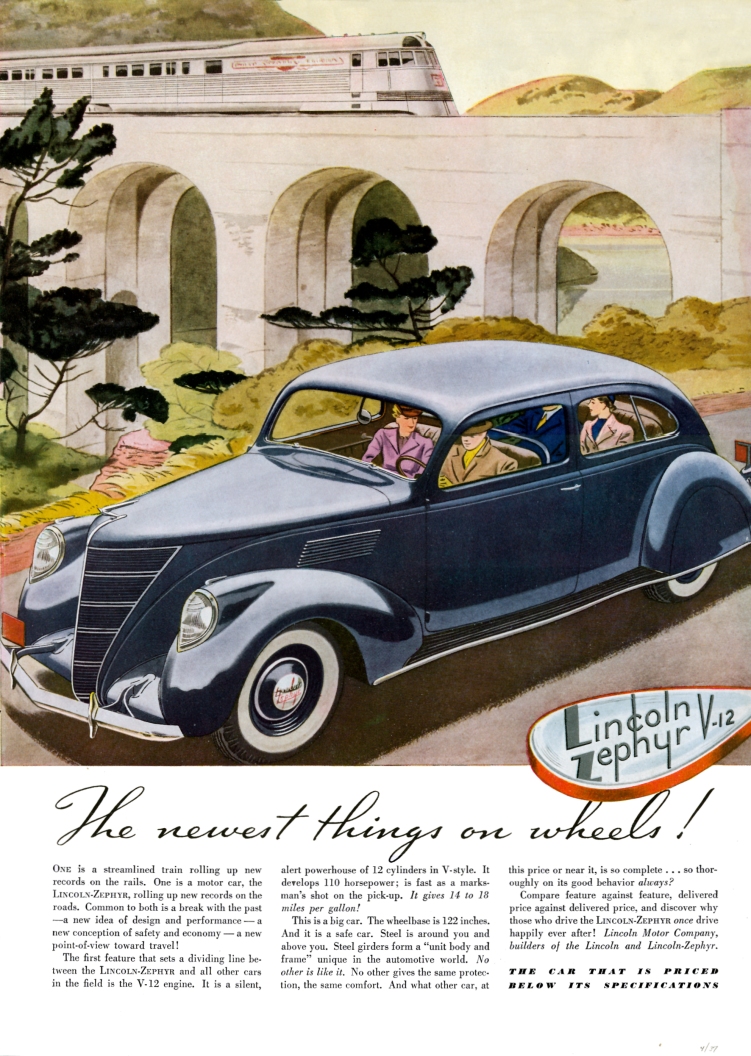 1937 Lincoln Zephyr ad (The Henry Ford)
1937 Lincoln Zephyr ad (The Henry Ford)
In 1938, the Zephyr received a face lift which most consumers admired and enjoyed. The Zephyr three-passenger models were brought back, and each of the models were completely redesigned. Lincoln also introduced the great looking Zephyr four-door convertible sedan, priced at $1,790.
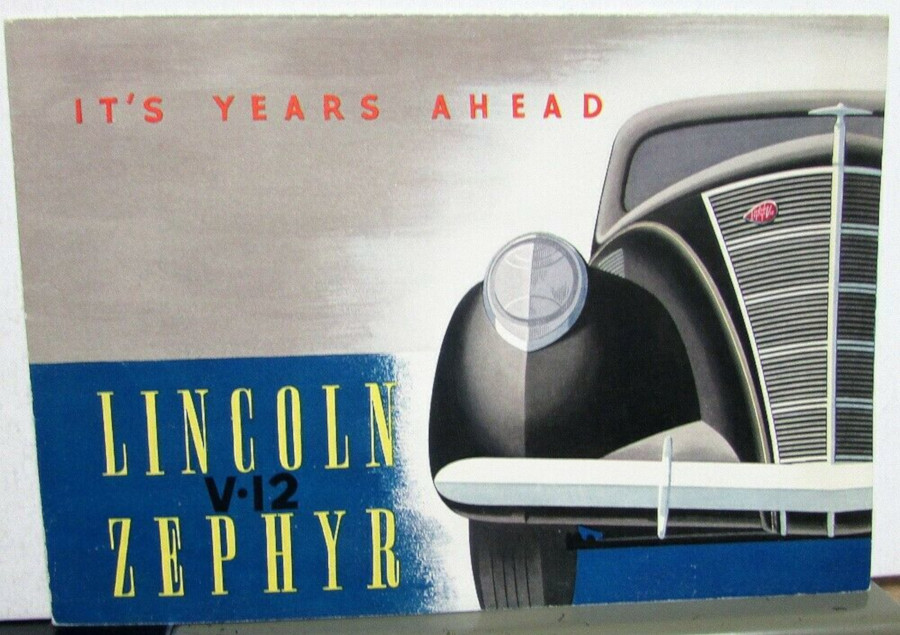 1939 Lincoln Zephyr sales material (The Henry Ford)
1939 Lincoln Zephyr sales material (The Henry Ford)
For 1939 and 1940, a restyled Lincoln Zephyr received a great deal of competition from the introduction of the new Mercury automobile. In 1940, Briggs continued to be involved with manufacturing bodies for the Zephyr sedan and other models as well. Overall, the Lincoln Zephyr was manufactured from 1936-1942. After World War II in 1946, Lincoln decided to drop the Zephyr name.
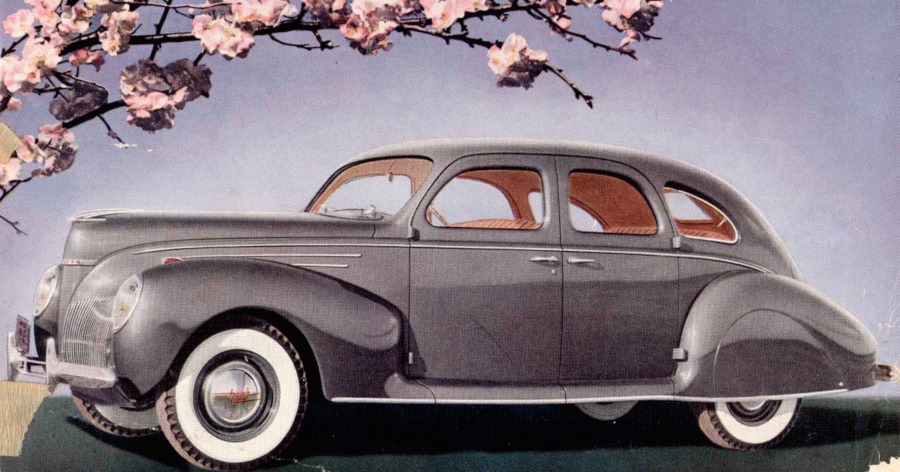 1939 Lincoln Zephyr ad photo (The Henry Ford)
1939 Lincoln Zephyr ad photo (The Henry Ford)
In conclusion, the Zephyr models were a highlight during this era in Ford’s automotive timeline. They were very popular among the American buying public and are now a part of our automotive heritage to be followed by many generations to come.
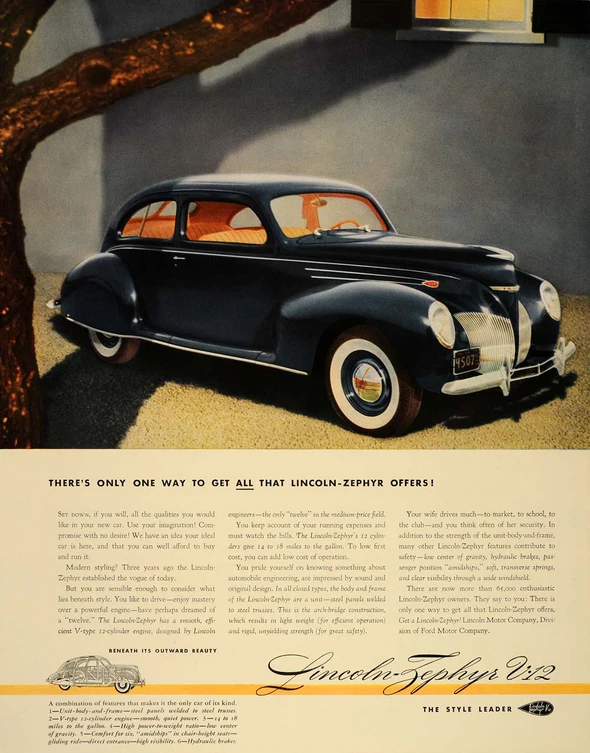 1940 Lincoln Zephyr ad (The Henry Ford)
1940 Lincoln Zephyr ad (The Henry Ford)
Bibliography
Dammann, George H. “50 Years of Lincoln-Mercury.” Crestline Publishing, 1971.
Kimes, Beverly Rae & Clark Jr., Henry Austin. “Standard Catalog of American Cars, 1805-1942.” Krause Publications, 1991.
Lamm, Michael & Holls, Dave. “A Century of Automobile Style: 100 Years of American Car Design.” Lamm-Morada Publishing, 1996-1997.

